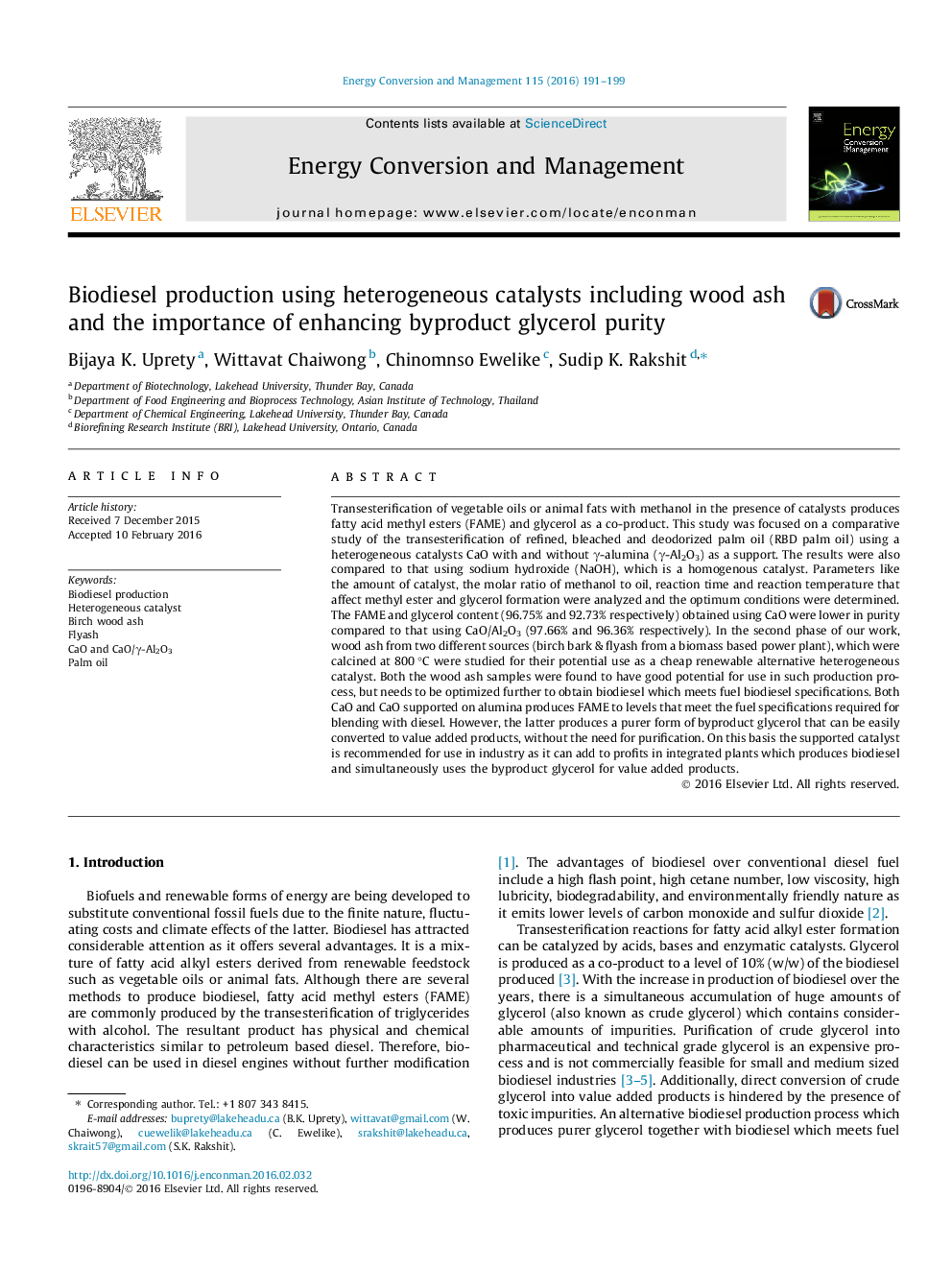| کد مقاله | کد نشریه | سال انتشار | مقاله انگلیسی | نسخه تمام متن |
|---|---|---|---|---|
| 760312 | 1462847 | 2016 | 9 صفحه PDF | دانلود رایگان |
• Comparison of biodiesel production using homogeneous and heterogeneous catalysts.
• Comparative study of CaO and CaO supported on alumina for biodiesel production.
• Tradeoff between biodiesel conversion rate and purity.
• Ash from birch bark and wood pellet industry explored as a potential catalyst.
Transesterification of vegetable oils or animal fats with methanol in the presence of catalysts produces fatty acid methyl esters (FAME) and glycerol as a co-product. This study was focused on a comparative study of the transesterification of refined, bleached and deodorized palm oil (RBD palm oil) using a heterogeneous catalysts CaO with and without γ-alumina (γ-Al2O3) as a support. The results were also compared to that using sodium hydroxide (NaOH), which is a homogenous catalyst. Parameters like the amount of catalyst, the molar ratio of methanol to oil, reaction time and reaction temperature that affect methyl ester and glycerol formation were analyzed and the optimum conditions were determined. The FAME and glycerol content (96.75% and 92.73% respectively) obtained using CaO were lower in purity compared to that using CaO/Al2O3 (97.66% and 96.36% respectively). In the second phase of our work, wood ash from two different sources (birch bark & flyash from a biomass based power plant), which were calcined at 800 °C were studied for their potential use as a cheap renewable alternative heterogeneous catalyst. Both the wood ash samples were found to have good potential for use in such production process, but needs to be optimized further to obtain biodiesel which meets fuel biodiesel specifications. Both CaO and CaO supported on alumina produces FAME to levels that meet the fuel specifications required for blending with diesel. However, the latter produces a purer form of byproduct glycerol that can be easily converted to value added products, without the need for purification. On this basis the supported catalyst is recommended for use in industry as it can add to profits in integrated plants which produces biodiesel and simultaneously uses the byproduct glycerol for value added products.
Journal: Energy Conversion and Management - Volume 115, 1 May 2016, Pages 191–199
